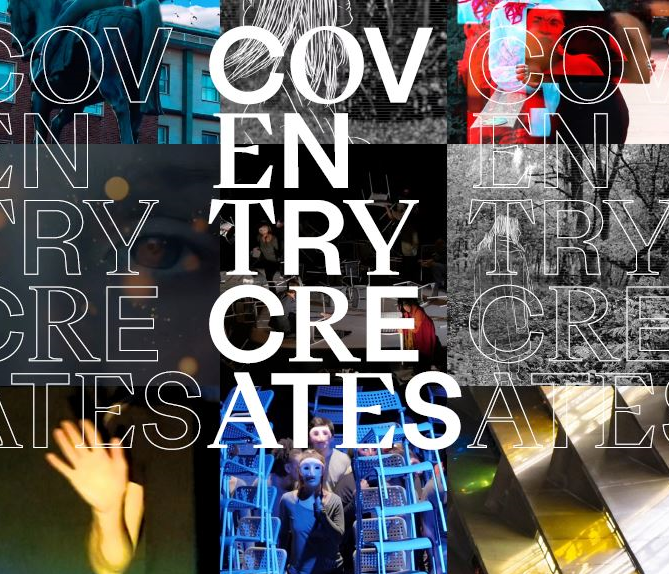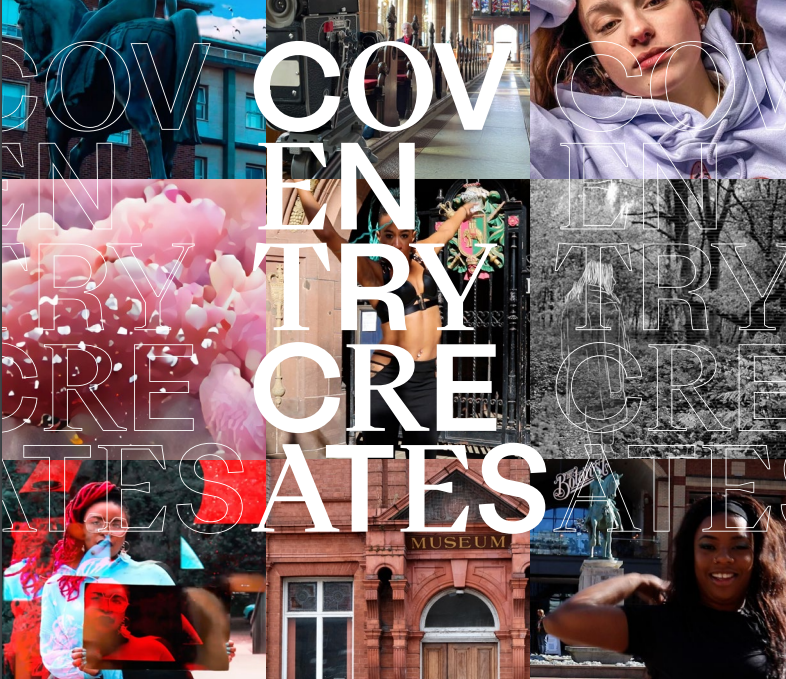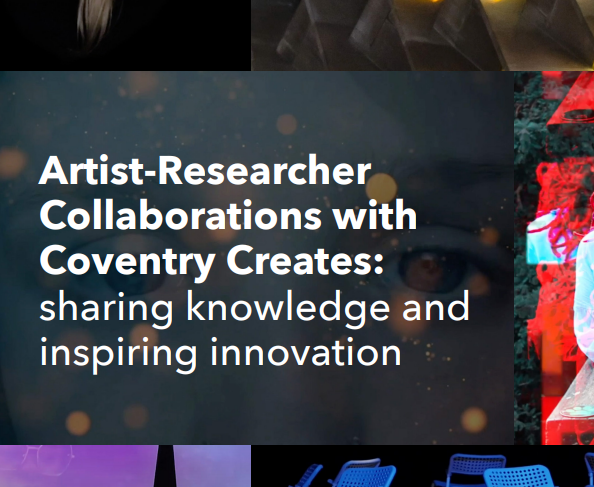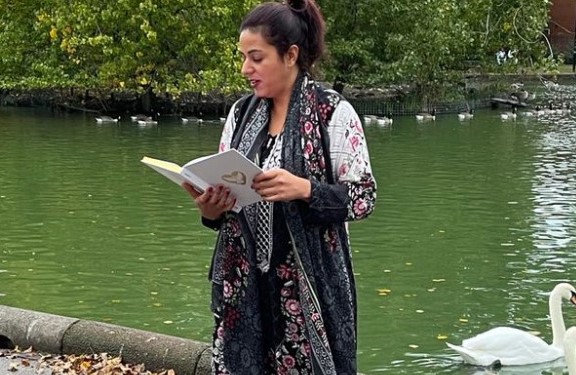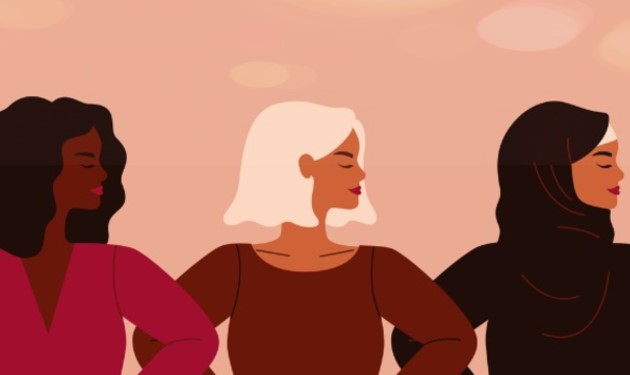Coventry Biennial

Coventry Biennial
Image credit: We Bear installation at Herbert Art Gallery & Museum. Photo: Garry Jones. The installation was created by artist Faye Claridge. University of Warwick Professor Anastasia Chamberlen shared her research with Faye as part of a 2021 collaboration.
About the Coventry Biennial
Following successful partnerships in 2019 and 2021, WIE has co-funded with Warwick Research and Impact Services and the Sustainable Cities GRP a significant and exciting opportunity to bring together University of Warwick research, contemporary art and work with communities, to be a major part of the Coventry Biennial 2023.
Coventry Biennial is a social, political and critical platform for contemporary art, that delivers significant festivals every two years and has welcomed a million highly engaged visitors to exhibitions, events and activities since 2017. Click here to look back over the partnership so far.
The fourth programme took place from October 2023 until January 2024. The programme occupied museums and galleries as well as public and unexpected spaces across Coventry and Warwickshire.
Concluding the Biennial Programme 2023
The Biennial 2023 programme concluded with a symposium "Transformations" which took place on the 12th January. This provides an overview of the event.
You can find out more about the symposium and catch up on the sessions by following the link below.Researcher/Artist Collaboration
We recently invited researchers working in/on the following areas to an informal information session: climate change, the environmental humanities, the Anthropocene, geology, geo-politics, sociology, identity, social justice, migration, belonging, health and wellbeing, placemaking, the public realm, urbanism, local history, green futures, sustainability, environmental issues, biodiversity.
We heard from Faye Claridge and Ana Chamberlen who collaborated for the 2021 Biennial. They shared insights about how exciting the collaboration was, how they learnt a lot from each other and had a very positive and rewarding experience. Faye and Ana have continued to develop their relationship and projects with various funding applications and papers in draft, under review or awarded.
As a result of this event we received applications from researchers across campus who were interested in being partnered with an artist for this exciting project/commission for Coventry Biennial 2023. The successful applicant, Professor Graeme Macdonald, was brought together with Paul Lemmon, a local Artist to deliver the Biennial commission.
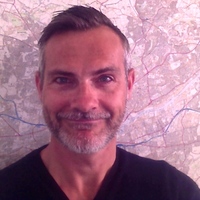
Graeme MacDonald, English and Comparative Literary Studies
Graeme’s work is situated in the relatively nascent field of "petrocultures" (see www.petrocultures.com/) an interdisciplinary research field which produces academic and cultural/creative work assessing and registering the social and cultural expressions and lifeworlds of oil and fossil fuels at various sites across the world. It is adjacent to the larger research concern known as 'Energy Humanties'. He is a founding member of the (ongoing) international After Oil collective which has for the last ten years produced collectively written (open access) books, podcasts and artworks “that seek to initiate, imagine and think through the associated challenges of post-oil culture from a number of angles: aesthetic, political, infrastructural, affective, economic, etc. He is interested in science fiction and speculative cultures and more specifically the various visions this rich field has presented towards energy, environmental and futurological thinking in the broader sense. Graeme is also part of a team based in English and Comparative Literary Studies who have just freshly minted an Environmental Humanities MA.
Speaking of his collaboration with the Biennial, Graeme said: "I am thrilled to be able to engage in this kind of collaboration with a 'real life' artist. The process has already been instructive for me, testing the significance and capacity of the speculative mode that my research often turns upon. 'Open Futuring' has become an influential set of techniques in an Environmental Humanities oriented towards the world to come. I'm curious about the ways in which (the artists) work, in form and approach, provides a novel means to think about transition and to get publics to engage with it in ways different to the speculative projections in scientific reports or environmental papers. The challenge that the climate crisis and the energy transition lays before us all—whether physicist or engineer, teacher or artist– is to think harder about how our way of apprehending its nature and possible outcomes might shape our practice—and how that practice in turn might offer something to shape those outcomes for the better. I'm excited to see what future this collaboration affords!"
"Our work with University of Warwick on past Biennial's has been really significant for artists, researchers, the communities that they work with and for our audiences. We're delighted to be building on that past work through a new collaboration that explores what is possible when HEIs and cultural organisations combine their expertise. The collaboration between Graeme and (the artist) offers impactful opportunities for both of them to understand their own practices through new lenses, but also to produce something entirely new that wouldn't otherwise be possible. At Coventry Biennial we're particularly pleased to have offered this opportunity to an artist based in Coventry, ensuring that local artists are receiving high profile commissions that support creative and professional development."
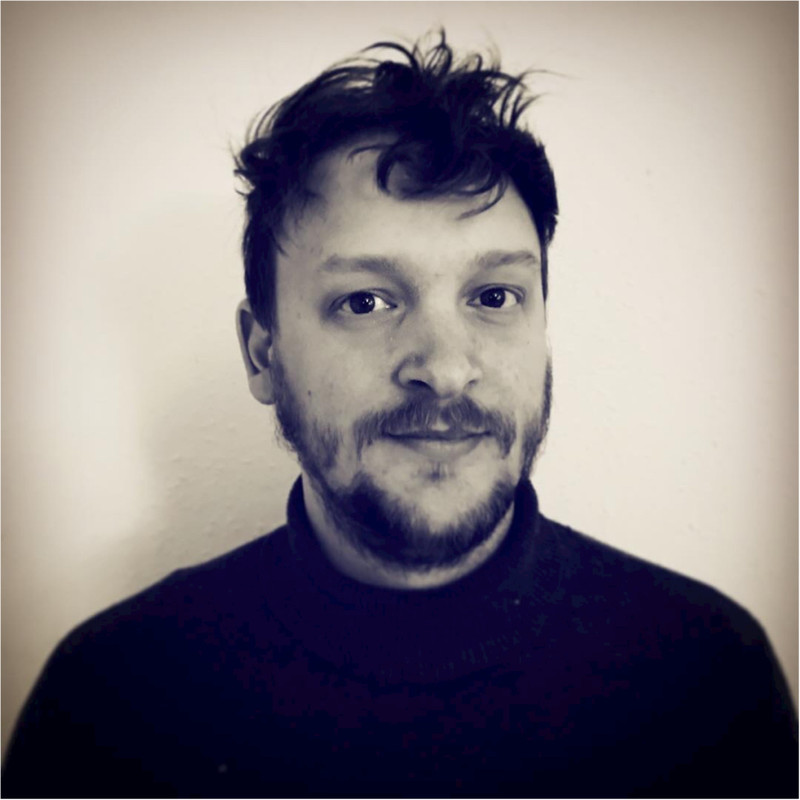
Ryan Hughes, Artistic Director and CEO
Concluding the Biennial Programme 2023
The Biennial 2023 programme concluded with a symposium "Transformations" which took place on the 12th January. This provides an overview of the event.
You can find out more about the symposium and catch up on the sessions by following the link below.
Image credit: Ben Rivers, Look Then Below, Moving Image, 2019. Courtesy: Ben Rivers and LUX, London
Artist/Researcher Collaborations
Researchers who have collaborated on artistic and creative endeavours have reported broad benefits in doing so. The process of collaboration and exposure to new knowledge, approaches and insights can help enrich research, foster new pathways for relationship building, research engagement, impact, communication, translation and development.
You can learn more about the experiences of researchers engaged in creative collaborations in the following documents and videos:
Watch a short 3-minute video where researchers discuss their experiences of collaborating with artists which you can find, alongside other short videos.
When it comes to encouraging others to take part in artist-researcher collaborations, Khursheed is unwavering in her advice:
“I’d say to them – go for it! It really will be worthwhile – both in terms of what you learn yourself, as well as collaborating and engaging with people who don’t work in a university environment. We don’t do that enough. Some departments may have lots of experience in working outside of academia, but others may not have had many opportunities to do so, so I’d say seize the opportunity."

